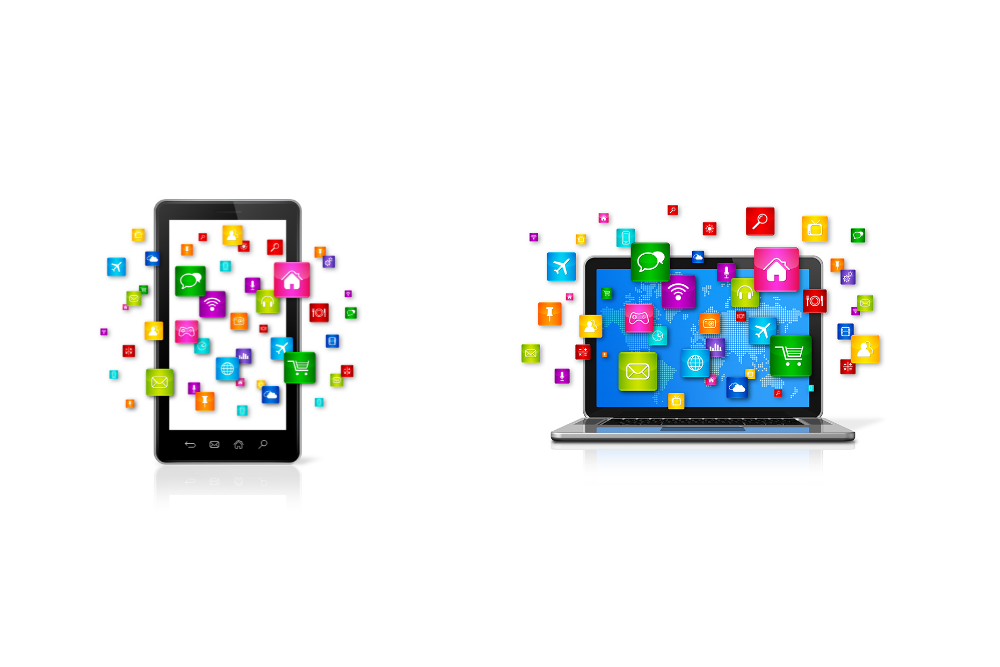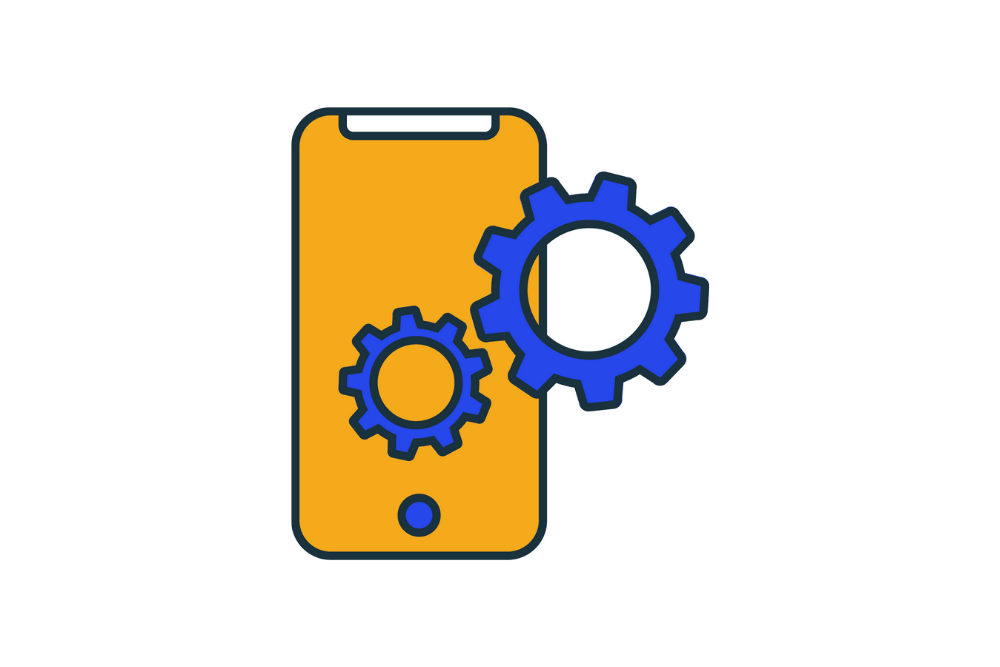Having a website was enough for businesses to reach out to their consumers in the past. However, in today’s digital age with the boost in technology, businesses need to have a mobile app to stay competitive. But what is mobile app development? And what are the different types of mobile apps? This blog will answer the questions related to mobile app development and its types.
What is a Mobile Application?
A mobile app is a type of software that runs on mobile devices. These devices include smartphones as well as tablets. Mobile apps are usually downloaded from an app store like Google Play or the Apple App Store. Most mobile devices come with a selection of pre-installed apps. But users can also download and install other apps to their devices. Millions of mobile applications are available for download, ranging from games and entertainment to productivity tools and business applications.
Mobile apps are typically written in a specific programming language such as Java or Objective C. They are designed for use on particular platforms such as iOS or Android. Mobile app development is increasing in popularity, with an estimated $170 billion in 2021.
How are Mobile Applications different from Websites?
Mobile apps are software programs designed for mobile devices like smartphones and tablets. They are different from websites in a few key ways:
- Mobile apps are installed on the device, whereas websites are accessed through a web browser.
- Moreover, Mobile apps are designed to be used on a small screen. Whereas websites are typically designed to be used on a large screen.
- Mobile apps are typically faster and more responsive than websites.
- Mobile apps can access the features and sensors of the devices, such as their camera, GPS, etc.
- These apps can be updated over the air without going through a website.
- Mobile apps can be accessed through app stores, whereas websites are not typically sold in this way.
Overall, mobile apps provide a more immersive and engaging experience than websites. Therefore, if you’re looking to create a mobile presence for your business or organization, it’s crucial to consider developing a mobile app rather than only a website.
Major Categories of Mobile Applications
So what is mobile app development? It is the process of creating software for smartphones and tablets. Mobile apps have further two categories: Native apps and Web apps. The first category is native apps installed on the user’s device, while web apps are accessed through a mobile browser.
Native Mobile App
Native apps are faster and easy to use in comparison to web apps. They can also access your device’s features, such as its camera and GPS. Furthermore, native apps are also responsive and adjust according to the device. These apps can only be used on devices with the same operating system. For example, an iOS app can only be used on iPhones and iPads.
Compared to native mobile applications, web apps can be used on any device. The operating system of the device does not matter in this case. However, these apps are not as fast or responsive as native apps. They also have less access to device features.
Examples of Native Mobile Applications
If you’re looking for examples of native mobile applications, these are three of the most popular ones in the world. WhatsApp, Spotify, and Soundcloud are all great examples of how a native mobile app can be used to improve your life.
- WhatsApp is a messaging app you can use to connect with your friends and family. Most importantly, it is completely free of cost, increasing its worldwide popularity. Furthermore, it has over one billion users, and it’s one of the most commonly used messaging apps in the world.
- Spotify is a music streaming app that lets you stream your favourite songs online and offline. With over seventy million users, it’s one of the world’s most popular music streaming apps.
- Soundcloud is another popular music streaming app that features your favourite songs and artists. This music streaming app also has over 175 million users worldwide.
Advantages of Native Apps:
- Faster and more responsive
- Access to more device features
- Only usable on devices with the same operating system
Disadvantages of Native Apps:
- Must be installed on each device
- More expensive to develop
- It takes longer to develop
Web Apps
Web apps are platform-independent, which means they can be used on any device that has a web browser. However, they are not as responsive or fast as native apps. Furthermore, they also have less access to the features of the device.
Examples of Web Apps:
Here are a few examples of web applications from our daily life:
Facebook: Facebook is a social networking app that lets you connect with your friends and family. This popular app has over two billion users worldwide, and its popularity keeps growing every day.
Instagram: Instagram is a photo and video-sharing app that lets you share your photos and videos with your friends and family. Instagram is one of the most popular photo and video sharing apps over the internet, with more than one billion users.
Pinterest: Pinterest is one of the commonly used social networking sites. It is a visual discovery and sharing platform where users can pin their interests, recipes, projects to boards that they create. Pinterest has over 250 million active users.
Advantages of web apps over native mobile apps:
- It can be used on any device with a web browser
- Less expensive to develop
- It takes less time to develop
Disadvantages of web apps:
- Slower and less responsive than native apps
- Less access to device features than native apps
- Not as popular as native apps
So which type of mobile app is right for your business? That depends on your needs and budget. If you need an app that can be used on a wide range of devices, then a web app is the best option. However, if you need an app with specific features that only work on certain devices, a native app would be the answer.
Hybrid Apps
In addition to the other two types of mobile apps, hybrid apps combine both native and web apps. They are installed on the user’s device like a native app, but they are accessed through a mobile browser like a web app. Moreover, they are fast and responsive like native and platform-independent web apps.
Advantages of hybrid apps:
- Fast and responsive like native apps
- Platform-independent like web apps
Disadvantages of hybrid apps:
- Must be installed on each device
- More expensive to develop than web apps
- It takes longer to develop than web apps
So now that you know what mobile app development is let’s look at the significant differences between these types of mobile apps.
How to decide which type of application you should develop?
There are many different types of mobile applications, and it can be challenging to decide which type to develop. Native applications are developed for particular platforms like Android or iOS. Next, standard web technologies and practices are used to build web applications. These applications can be accessed through a mobile browser. Finally, hybrid apps mix native and web apps and can be installed on native apps. Also, can be accessed through a mobile browser.
When it comes to deciding which type of application to develop, you should begin by determining your target audience. For example, a web app or hybrid app may be a better option if you target a global audience, as these apps are not limited to a specific platform. On the other hand, developing a native app may be the best option if you target a particular market or region.
Moving forward, the next step is to set aside your budget and development time frame. Native apps are usually more expensive and take longer to develop than web or hybrid apps. If you are on a tight or low budget, a web app or hybrid app may be better.
Finally, the last step is deciding what features and functionality your application will include. Native apps offer the best performance and most flexibility, but they also require more time and money to develop. If you are looking for a straightforward or affordable solution, then a web app or hybrid app may be better.
In the end, the best type of application to develop depends on your specific needs and goals. If you are unsure which option is suitable for you, consult a Mobile Application Development Company for help. They will determine your needs and recommend the ideal choice ideal for your needs.
What are the famous Mobile App Stores?
There are many different mobile app stores, but some are more popular than others. The most popular mobile app stores include the Apple App Store, the Google Play Store, and the Microsoft App Store. These mobile app stores have many apps available for download, and they are all easy to use.
Google Play Store
With 3.48 million apps, the Google Play Store is the most popular mobile app store. It has a variety of apps available for download that are simple and easy to use. The Google Play Store is open on android devices, and it can be used to download apps for a variety of purposes, including entertainment, education, games, business, and other services.
Apple app store
The Apple App Store is another popular mobile app store. It has 1.96 million apps available for download, and it also offers ease of use. The Apple App Store is available on iOS devices, and you can access a large number of apps developed for various services, such as entertainment, education, business, and communication.
Microsoft App Store
The Microsoft App Store is the third most popular mobile app store. It also features a wide variety of apps for download. The Microsoft App Store is available on Windows devices. Like other mobile app stores, it allows users to download apps for different purposes.
Many other Mobile App Stores are available, but these three are the most popular. They all have a variety of apps available for download, which are convenient and easy to use.
FAQS
What is needed for Mobile App Development?
Mobile app development typically requires a skill set that includes experience in software development, user interface and user experience design, and graphic design. In addition, knowledge of the various mobile platforms and operating systems is necessary to create apps compatible with the broadest range of devices.
Furthermore, it is also essential to understand the business context within which the app will be used. This includes understanding the target users, what needs or problems the app addresses, and what features or functionality it should offer. Additionally, a good marketing strategy is also critical for promoting and selling mobile apps and tracking how users interact with them to make improvements over time.
How do I start Mobile App Development?
If you’re looking to get started in mobile app development. You’ll first need to decide which platform you want to develop for iOS or Android?
Once you’ve decided on a platform, there are a few different ways to go about learning how to develop apps. You can learn how to code on your own, or you can attend an app development course at a local college or online.
If you’re looking for a hands-on learning experience, we recommend attending an app development course. These courses will teach you to code and develop apps for a specific platform. Furthermore, most courses also include submitting your apps to the App Store or Google Play.
What is the cost of Mobile Application Development?
Mobile app development costs vary greatly depending on the required features and the app’s complexity. Typically, you can expect to pay in the range of $5,000 to $200,000 or more for custom mobile app development.
Many factors affect the cost of developing a mobile app, including the following:
- Platform (iOS or Android)
- Type of app (game, business, social networking, e-commerce, etc.)
- Features and functionality required
- Level of customization and design required
- Amount of testing and quality assurance needed
- Post-launch maintenance and updates
Conclusion:
There has been a dramatic shift in how people access the internet in the past few years. With the rise in smartphones and tablets, businesses need to have a mobile app to ensure their online presence and boast their leads and sales.








